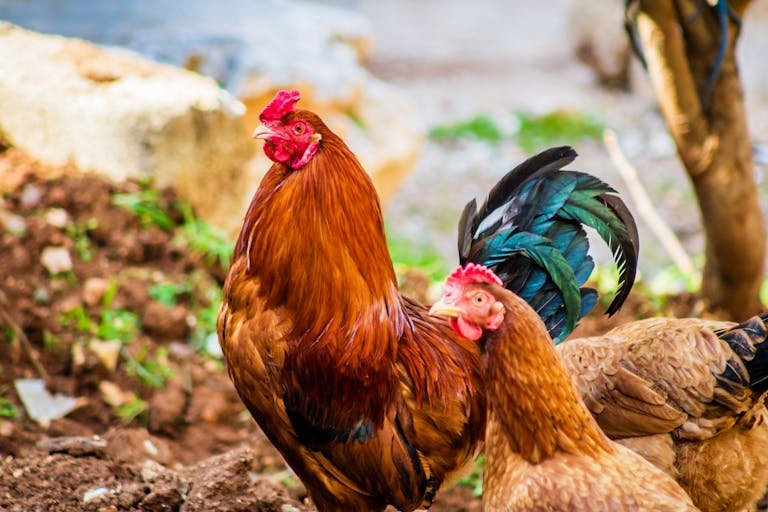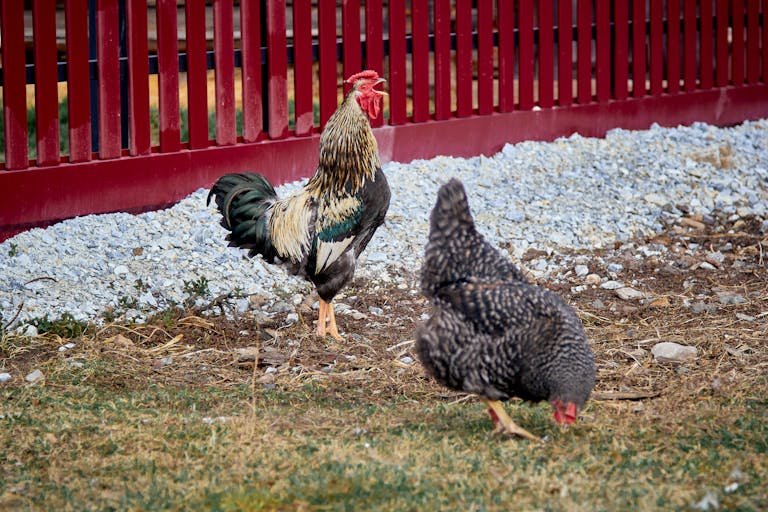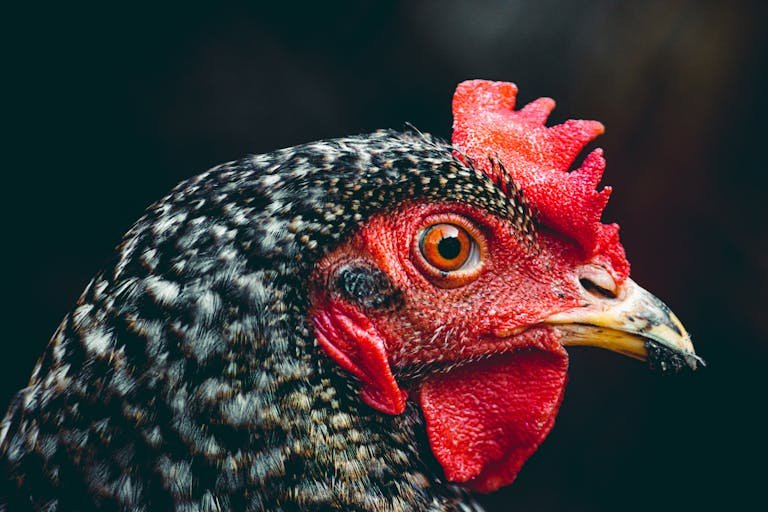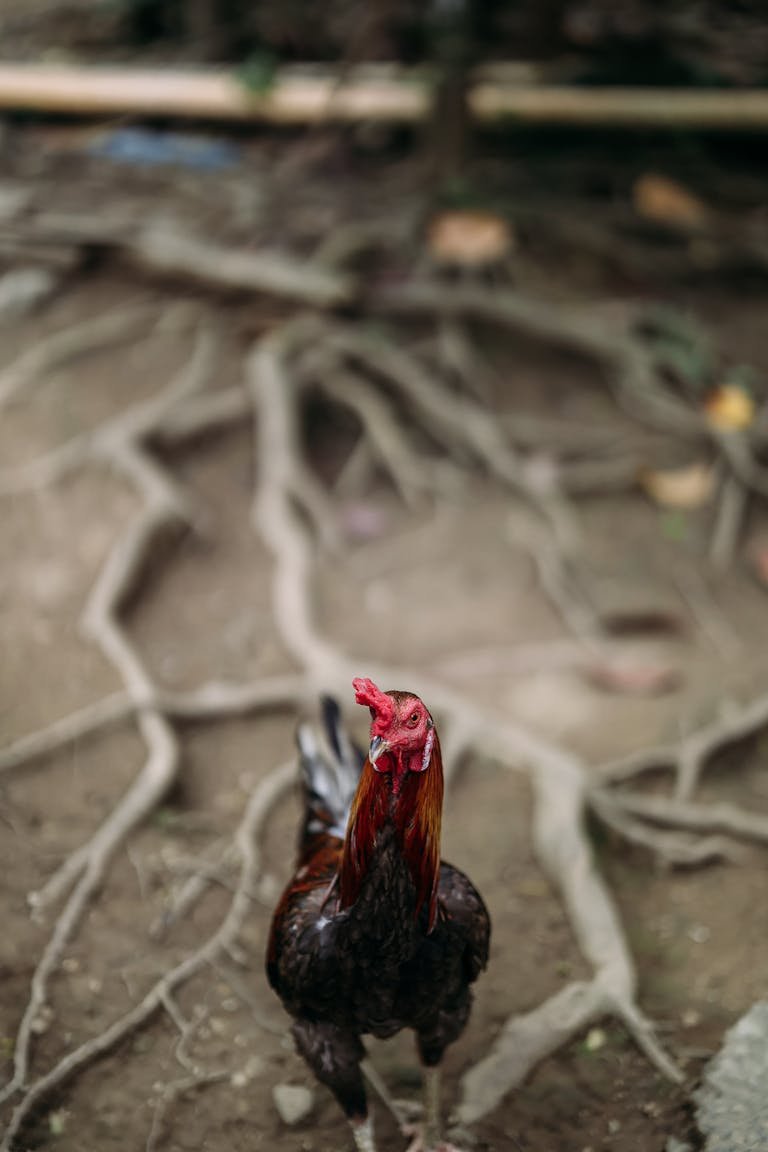How Cold Can Chickens Tolerate? Guide to Winter Care
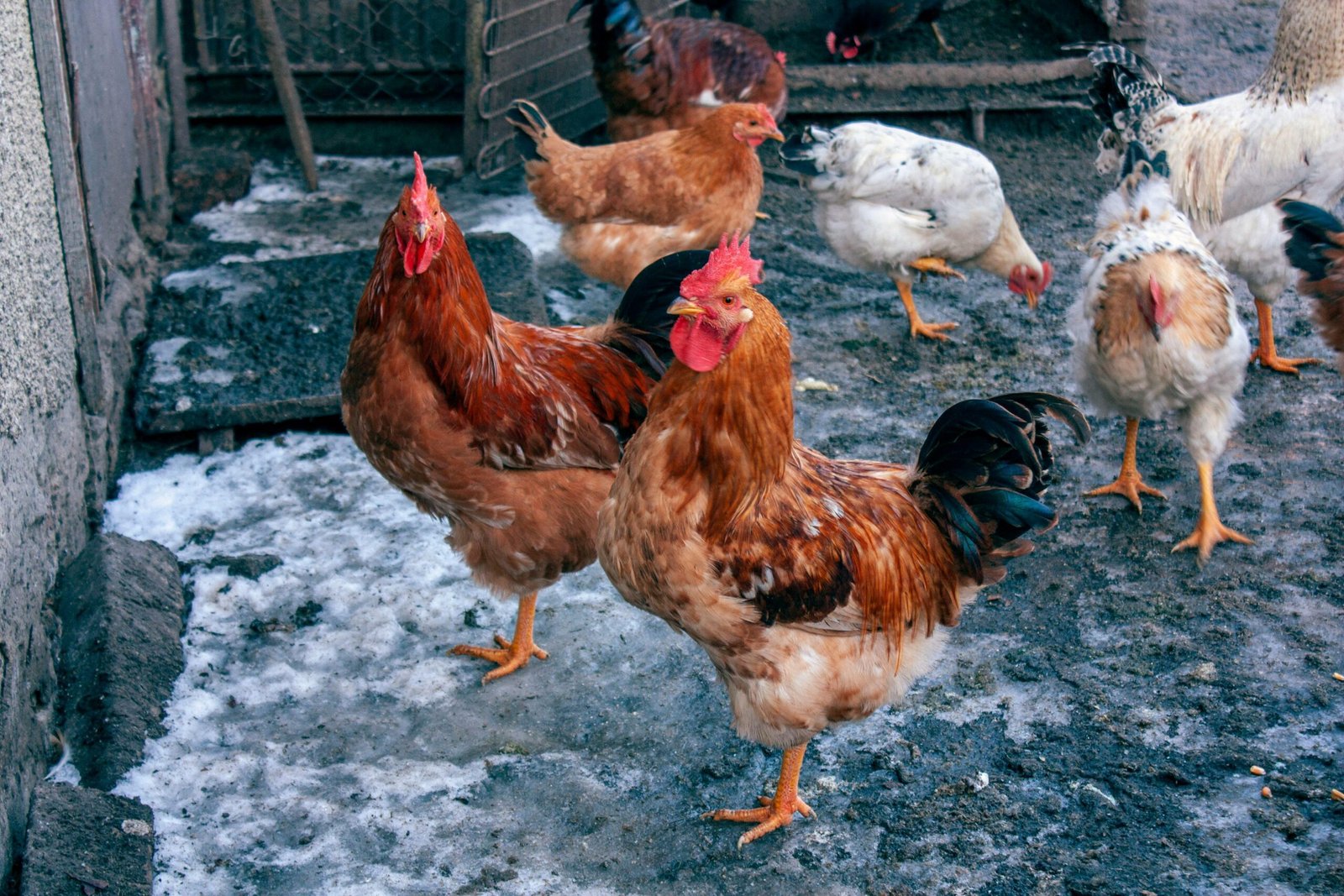
Chickens are comfortable at temperatures as low as 40-45 degrees Fahrenheit.
Chickens are known to be surprisingly resilient birds, capable of withstanding colder temperatures than many people expect. When properly prepared, they can remain healthy and active even in weather that would be too chilly for most animals. However, understanding How Cold Can Chickens Tolerate? taking steps to protect them when the temperatures drop too low, is essential for any chicken keeper. Typically, chickens are comfortable at temperatures as low as 40 to 45 degrees Fahrenheit, but as it gets colder, certain factors like breed, age, and health start to play a more significant role in their tolerance to the cold.
Factors Affecting Cold Tolerance
Several factors influence how well chickens can withstand cold weather. Below are the main considerations that you (the chicken keeper) should be mindful of:
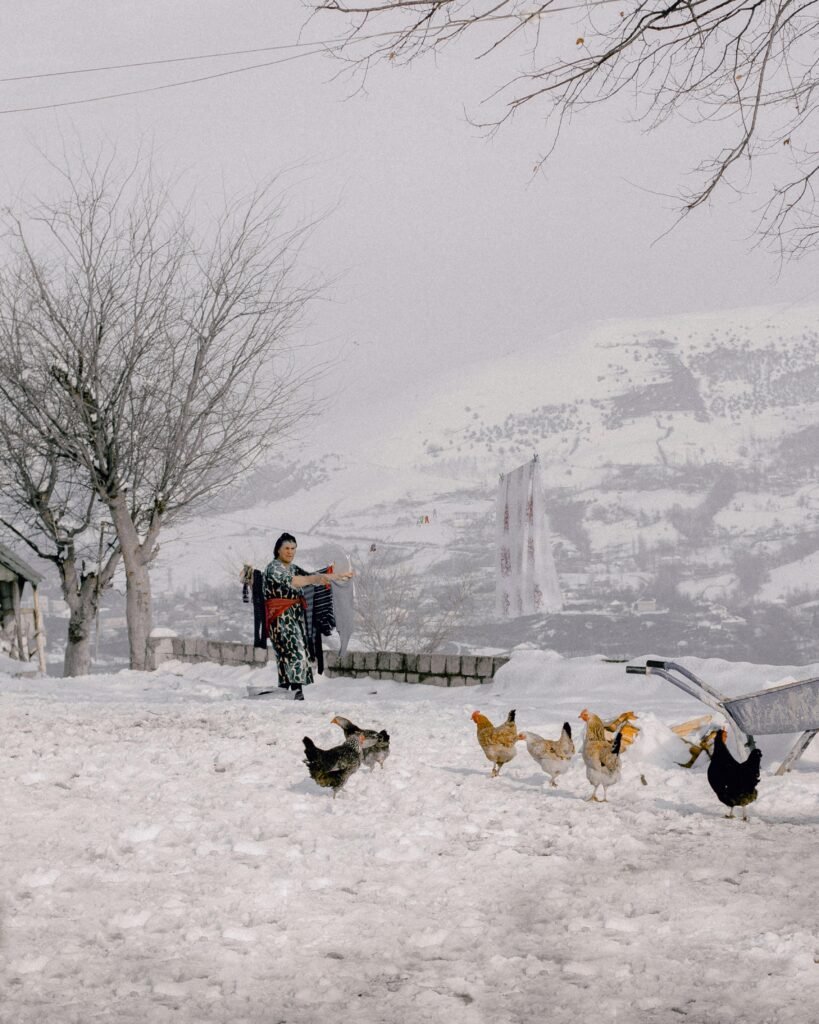
Breed
Different breeds have varying levels of cold tolerance. Some chickens are naturally more equipped for cold weather, while others may struggle when the temperature drops.
- Rhode Island Reds: These birds are famous for being hardy in both cold and hot temperatures. They are versatile and can adapt well to different weather conditions.
- Barred Plymouth Rocks: This breed has dense plumage that acts as natural insulation, allowing them to handle colder temperatures with ease.
- Black Australorps: Known for their excellent laying ability in winter months, Australorps are a robust breed capable of dealing with cold weather.
Chickens from these breeds are less likely to suffer from the cold as they have physical traits that help them stay warm. On the other hand, some more ornamental or lightweight breeds, like Silkies or Leghorns, may not fare as well in colder environments without extra precautions.
Age
Chicks vs. Adult Chickens:
- Adult chickens are generally more resilient and have better-developed plumage, which helps keep them warm. In contrast, chicks are vulnerable to hypothermia and cannot regulate their body temperature as efficiently, which makes it essential to provide them with extra warmth in cold weather.
- Molting Chickens: Even adult chickens can struggle during certain phases of life, such as during molting. Molting is the process where chickens lose old feathers and grow new ones. Since feathers provide critical insulation, chickens going through molt may feel the cold more intensely and require additional protection.
Overall Health
- Healthy Chickens:
A chicken’s overall health plays a crucial role in how well they can tolerate cold temperatures. A strong, healthy chicken will fare better in cold weather than one that is weak or sick. Ensuring your chickens are in good condition before the onset of winter is important. Regular health checks, a nutritious diet, and parasite control will help maintain their well-being, increasing their ability to withstand cold. - Ill or Weakened Chickens:
Chickens that are suffering from illness, old age, or nutritional deficiencies may struggle more in cold weather. Their bodies will require more energy to keep warm, which may lead to further health problems if not properly managed.
Coop Conditions
The environment where your chickens spend most of their time during the winter is one of the most important factors in determining how well they can tolerate cold temperatures.
Coop Design
- Proper Insulation:
An insulated coop is essential for keeping chickens warm in the winter. Insulation helps to trap heat within the coop and prevents cold drafts from penetrating. Common materials used for insulating a chicken coop include foam boards, fiberglass, and straw bales. - Ventilation without Drafts:
While insulation is crucial, it’s also important to ensure good ventilation. Chickens produce a lot of moisture through breathing and droppings, and if this moisture cannot escape the coop, it can lead to respiratory problems and increase the risk of frostbite. However, any vents in the coop should be positioned so that cold drafts do not blow directly onto the chickens, especially while they are roosting.
Bedding
- Deep Litter Method:
A popular method to keep chickens warm in winter is the deep litter method. This involves layering straw or wood shavings in the coop and allowing it to break down over time. As the litter decomposes, it generates heat, which helps to warm the coop naturally. - Adequate Bedding:
Even without the deep litter method, providing ample bedding material such as straw, wood shavings, or hay is critical. The bedding serves as insulation for the floor of the coop, keeping the cold from the ground from reaching your chickens.
How Cold is Too Cold for Chickens?
Chickens can handle temperatures below freezing, but it’s essential to take the right precautions to ensure they don’t suffer in extreme cold. In most cases, chickens can tolerate temperatures down to around 20-30 degrees Fahrenheit, but this depends on the factors discussed earlier. So, how can you tell when the cold has become too much for your flock?
Identifying Cold Stress in Chickens
Knowing the signs of cold stress can help you act quickly to keep your chickens safe:
- Shivering: If your chickens are visibly shivering, they are struggling to stay warm.
- Huddling Together: Chickens will often huddle together for warmth, but excessive huddling could mean they are feeling too cold.
- Lethargy: Chickens that appear unusually inactive, stand still, or do not want to move may be suffering from cold stress.
- Discoloration of Combs and Wattles: Frostbite can cause combs and wattles to turn pale or black in extreme cases.
How to Keep Chickens Warm in Cold Weather
While chickens can withstand cold temperatures, it’s essential to help them stay comfortable and healthy throughout the winter.
Provide a Warm, Draft-Free Coop
Creating a warm and draft-free environment is your first priority. Here are some ways you can do this:
- Insulate the Coop: Use appropriate materials to line the walls and ceiling of the coop to retain heat.
- Seal Cracks and Gaps: Ensure there are no gaps in the coop that could allow cold drafts to penetrate. Use caulk or weatherstripping to seal up cracks.
- Provide a Roosting Bar: Chickens like to roost off the ground, especially in cold weather. Providing a sturdy roosting bar will allow them to huddle together and share body heat, keeping them warmer.
- Consider a Heat Source: In extremely cold climates, you may want to provide a safe heat source, such as a heat lamp or radiant heater, to help keep the coop temperature above freezing. However, this should be used with caution to avoid fire hazards.
Ensure Access to Plenty of Food and Water
- Increase Food Intake: Chickens burn more calories in cold weather to maintain body heat. Make sure they have access to plenty of high-energy feed, such as cracked corn or layer pellets, which can provide the extra energy they need to stay warm.
- Prevent Water from Freezing: One of the biggest challenges in winter is keeping your chickens’ water from freezing. Use a heated waterer or water heater base to ensure they always have access to fresh, unfrozen water.
Protect Their Combs and Wattles
- Apply Vaseline to Comb and Wattles: Chickens’ combs and wattles are particularly susceptible to frostbite in cold weather. To prevent this, apply a thin layer of Vaseline or petroleum jelly to these sensitive areas. This creates a barrier that helps prevent moisture buildup and protects against the cold.
Monitor Your Flock
Keeping an eye on your chickens throughout the winter is key to ensuring they remain healthy. Here’s what you should watch for:
- Cold Stress Symptoms: Be on the lookout for signs of cold stress, such as shivering, lethargy, or frostbite.
- Regular Health Checks: Examine your flock regularly for signs of illness, weight loss, or injury. Weakened chickens are more vulnerable to cold stress, so it’s essential to address any health concerns immediately.
- Check the Coop Conditions: Regularly inspect your coop for drafts, adequate bedding, and overall cleanliness. Maintaining a dry, insulated, and clean coop will help your chickens stay comfortable.
Read Also: Stop Chicken Water from Freezing: 5 Simple, Foolproof Tips
Final Words
Chickens are surprisingly tough animals, capable of withstanding cold temperatures when properly cared for. Most breeds can comfortably handle temperatures down to 40-45 degrees Fahrenheit, and with the right precautions, they can tolerate even lower temperatures. By paying attention to factors like breed, age, health, and coop conditions, you can help your flock thrive during the winter months.
Always monitor your chickens for signs of cold stress and take action to provide a warm, safe environment that meets their needs. By following these steps, you’ll ensure that your chickens remain healthy, comfortable, and productive throughout the winter season.

